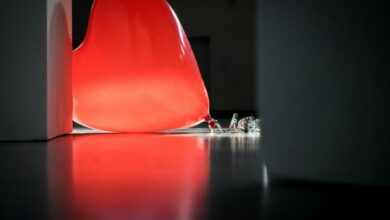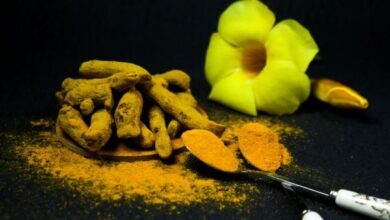Tweak your summer diet to protect your skin from UV rays

 Arming yourself with plenty of sunscreen, sun hats and cover-ups is essential for excellent skin health and UV protection. Even if you are not sunbathing at the beach, you might have incidental sun exposure as you go about your day.
Arming yourself with plenty of sunscreen, sun hats and cover-ups is essential for excellent skin health and UV protection. Even if you are not sunbathing at the beach, you might have incidental sun exposure as you go about your day.
In terms of protecting yourself from sun damage, sun protection is the most important.
However, certain lifestyle amendments can also help protect the skin from sun damage. The food items we incorporate into our daily diet are crucial in protecting the skin from harmful UV rays.
I would put diet right behind sunscreen because there are so many components you can consume from foods that have all these different protective effects.
In the quest for healthy, glowing skin, consider antioxidant-rich foods as your best ally during the summer season. Make sure that there are high levels of nutrients in your skin during the summer season to help limit sun damage.
Herbs
Herbs like elderflowers, rosemary and certain oils like coconut and red raspberry seed oil protect skin from sun damage.
Herbs have a high potential due to their antioxidant activity. Although isolated plant compounds have a high potential in the protection of the skin, whole herb extracts showed better potential due to their complex composition.
Rosemary extracts are helpful against the sun’s UV damage. Various studies concluded that taking an extract of rosemary and lemon regularly for more than eight weeks internally decreased UV damage in humans.
Rosemary extract is widely used in sun care creams. The sunscreen’s photoprotective efficacy is enhanced by adding rosmarinic acid.
Walnut extract has been shown in studies to be very effective as a self-tanning sunscreen agent.
It has compounds that react with the keratin proteins in your skin to form coloured compounds that protect you from UV rays.
Lavender not only has a lovely scent but has been found in studies to inhibit the generation of the type of free radical that causes much of the damage from UVA/UVB radiation.
Cocoa
How can you protect your skin this summer? Wear sunscreen, avoid tanning salons and eat chocolate. Yes, it’s true. As if we needed another reason to love chocolate, cacao and cocoa are excellent sources of antioxidant-rich polyphenols, helping to protect our skin from sun damage.
Cocoa beans fresh from the tree are exceptionally rich in flavanols, which contain significant photoprotection and can thus be effective at protecting human skin from harmful UV effects.
Cocoa flavanols are a powerful antioxidant in high-quality dark chocolate that can protect your skin from sun damage when consumed regularly.
Regular intake of 20 gm cocoa-based beverage for more than three months significantly reduces the risk of UV skin damage.
Cocoa offers sun protection and has positive effects on skin elasticity and wrinkles. The high cocoa beverage increased blood flow and moisture retention in the skin. It’s not unlikely that other forms of cocoa, such as chocolate, would have similar effects, but you want to stick with bars that have a cocoa percentage of 70% or more because they have a greater concentration of flavanols and less added sugar.
The flavanols compound found in cocoa protect from sun damage, but flavanols aren’t present in all types of chocolate.
Conventional chocolate has no such effect. The one exception is dark chocolate, specifically the kind labelled ‘preserved with HF (high flavanol) levels’.
Opting for lower-sugar options like dark chocolate is a great way to reap the benefits of chocolate without so much added sugar.
Salmon
Bursting with omega-3 fatty acids and antioxidants, this delicious fish can reduce inflammation from sunburns and block cellular damage from UV rays. Salmon is equipped with nutrients that safeguard your skin from hazardous UV radiation.
Salmon contains astaxanthin, which is more powerful than Vitamin C and Coq10 and 1,000 times more effective than Vitamin E.
More specifically, astaxanthin can improve skin health by reducing cell damage caused by free radicals after being out in the sun for too long. In a way, you can think of astaxanthin as “sunscreen” on the plate.
You can add veggies like cauliflower, carrots and leafy greens to your salmon meal for a power punch.
More specifically, astaxanthin can improve skin health by reducing cell damage caused by free radicals after being out in the sun for too long.
Red Grapes
Using grapes in your beauty regimen is a great way to protect yourself from harmful UV rays.
Grapes are jam-packed with resveratrol, a powerful antioxidant that can improve your skin’s defences against beaming sun rays.
Regular intake of red grapes prevents sunburns from UV-light exposure. A grape diet acts as a sort of ‘oral sunscreen’ that could supplement the topical forms that we put on our skin.
The antioxidants in grapes can provide an extra layer of defence against sun-induced skin damage. This is why using grapes for skin can be a helpful addition to your sun protection routine
Although sunscreen and protective clothing are the first line of defence against sun damage, a diet filled with antioxidant-rich foods can also offer UV protection. Just make sure to consume these foods during the day to fully protect your skin from harmful UV radiation.
Banner image by Moon Family: https://www.pexels.com/photo/mother-with-daughter-in-orchard-18895389/





